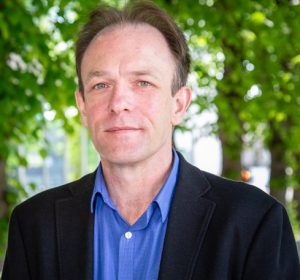
- Leading national and international research in school evaluation, theory development and best practice.
- Forging strong and productive links with key national stakeholders in education across both the Republic of Ireland and Northern Ireland including the Professional Development Service for Teachers, the Department of Education and Skills, the Department of Education (Northern Ireland) and the Inspectorates in both jurisdictions. Through such collaboration, EQI will continue to contribute to and develop vital capacity building interventions in key areas such as self-evaluation, cultural responsiveness and whole school policy development.
- Developing expertise in educational evaluation through contribution to and provision for undergraduate, postgraduate and post-doctoral engagement at a national and international level.
- Providing research and consultancy services for organisations who are interested in examining the quality of programmes or processes.
EQI has three research divisions.
Culturally Responsive Evaluation and Assessment
EQI has a longstanding partnership with the Centre for Culturally Responsive Evaluation and Assessment (CREA) at the University of Illinois at Urbana Champaign and hosts CREA@DCU. The core mission of CREA is to generate evidence for policymaking that is not only methodologically but also culturally and contextually defensible. This focus has particular resonance in the rapidly changing social and educational landscape of Ireland today.
The President of DCU, Prof. Brian MacCraith, summarised the range of recent changes in Irish education, and the importance of CREA as a response to this when he stated ‘The past two decades have seen a remarkable change in the make-up of Irish society. For the first time in our history, we experienced significant immigration and this has seen us move from being one of the most culturally homogeneous countries in Europe to being one of the most diverse. This change has brought with it many challenges and opportunities and it has forced us to re-think how we do things at all levels of society. One of the areas that has experienced the greatest amount of change in education and I think it is fitting that it is our School of Education Studies who established the first international CREA office to explore the impact of these changes in the critical areas of Evaluation and Assessment.’
CREA at Dublin City University is linked structurally with CREA at UIUC and this relationship has been deepened in recent years with the appointment of Prof. Stafford Hood of CREA Illinois as an Adjunct Professor at that School of Policy and Practice, DCU Institute of Education. Both the Dublin and Illinois Centres have engaged in collaborative research examining the roled of evaluation and assessment in culturally diverse settings and much of the is work was published in the 2015 work Continuing the Journey to Reposition Culture and Cultural Context in Evaluation Theory and Practice, (Information Age Publishing)
Our ‘new’ Irish community is endeavouring to shape an identity which embraces an ethos of equality, access and inclusion for all its citizens. Education is the key to making this happen.
The intercultural aspect of education, including culturally responsive and sensitive evaluation of programmes, is a vital but easily overlooked part of educational provision. A principle aim in the design, content, delivery and evaluation of all DCU programmes is to equip and support teachers and educators during the transition to embracing a diverse, pluralist society which is underpinned by social justice. This approach will serve the common good at both an individual and collective level and will provide for sustainability now and for future educational provision.
School Evaluation & Inspection
School Evaluation & Inspection specialises in researching approaches to the evaluation of organisational and professional practice in the education sphere. The centre is interested in external monitoring processes such as school inspection and the role of data in the evaluation of schools and teachers. It is also concerned with the development of the concept of school and teacher self-evaluation and the ways in which this process can, in conjunction with external accountability systems, drive change and improvement in professional practice. In consequence research in the centre explores the tension between accountability systems and organisational and professional development. The centre engages in collaborative research, both in Ireland and with international colleagues, around these teams.
The aim of School Evaluation & Inspection is to encourage the use of systematic evaluation to analyse and improve educational policy and provision.Objectives:
- to encourage and support research and in the evaluation field
- to develop the evaluation skills of graduate students
- to design and implement evaluation projects
- to contribute to the scholarship of evaluation
- to undertake the evaluation of educational policies, programmes and projects.
- to undertake research and development work around supporting the emergence of self-evaluation capacity as a methodology of improved professional practice and organisational performance
Irish Evaluation Network
EQI provides a base and support for the Irish Evaluation Network, the development of which is supported and promoted by a Co-ordinating Committee composed of individuals’ interested or involved in evaluation in Ireland. The Network was established in late 2002, to provide a forum for the exchange of ideas, seminars and conferences for people involved in evaluation in Ireland. It currently has run a variety of activities including Conferences and Lunchtime seminars.
As part of EQI’s commitment to enhance professional capacity in a range of evaluation-related areas it has, in partnership with the Professional Development Service for Teachers (PDST) agreed to host the Ollscoil Initiative. Conceptualised as a ‘space’ where individuals and organisations interested in the creation of and reflection on materials relevant to the professional lives of teachers and educators within Ireland and beyond Ollscoil is intended to act as a springboard for future engagement and reflection.
The Irish Team




